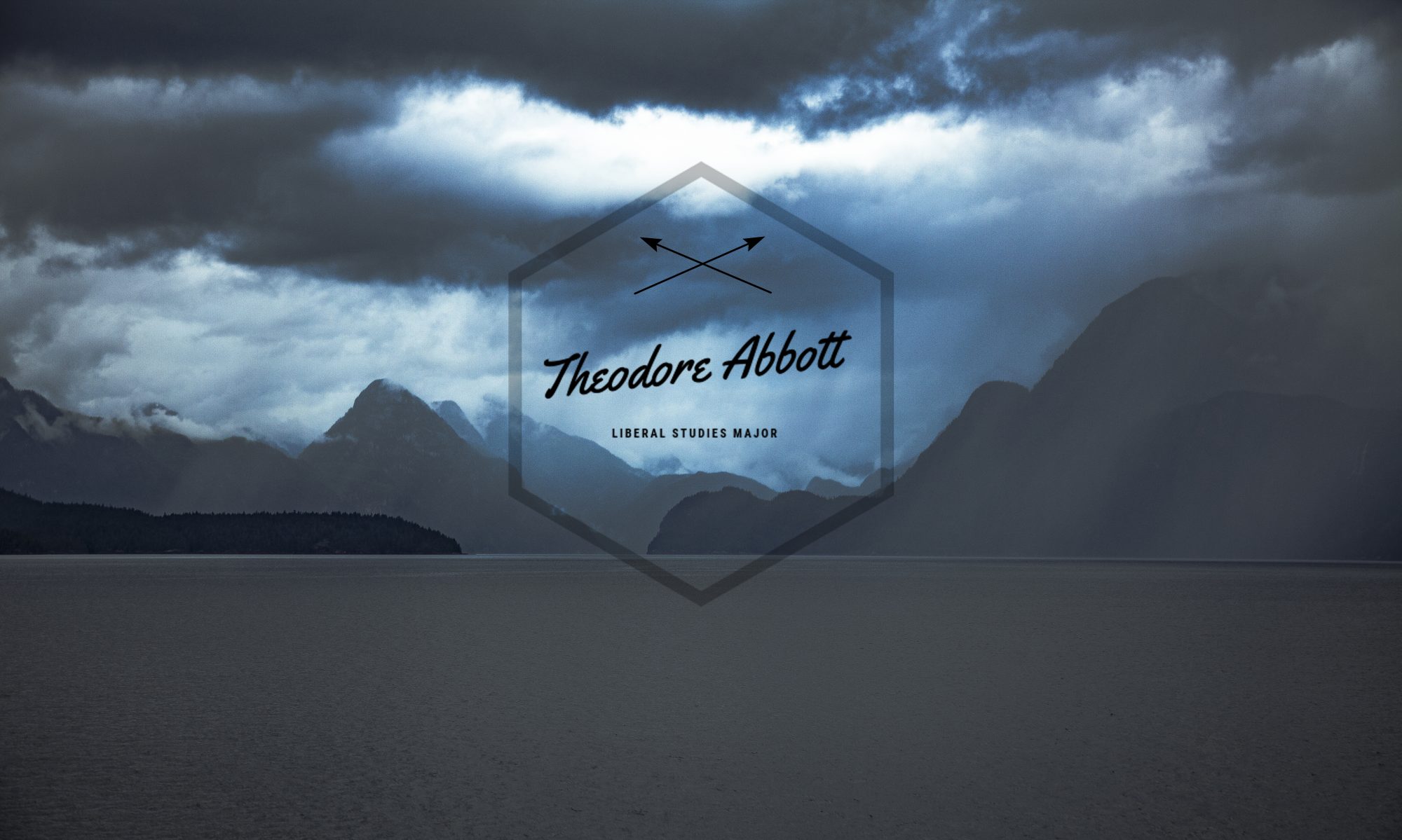Reflection 1
As I sit here in a café on commercial drive and reflect on my first several weeks in the Liberal Studies program at Capilano University, I feel a sense of opportunity and clarity.
In this reflection I will discuss the impact of approaching knowledge using interdisciplinary methodology and elaborate on the readings that I have most connected to and engaged with. I will describe personal behaviours, beliefs and biases I have been able to identify in regard to learning, and finally I will describe my learning experiences in relation to guest speakers and associated events.
Through examining a wide range of differing areas of study this course has taught me to compartmentalize every aspect of a subject and has helped deepen my understanding towards areas of interest, rather than just scratching the surface. There was a certain time in my life when I approached knowledge with timidity; that is no longer the case. When confronted with a new idea or field of study I like to disassemble all parts of said idea. As we have observed in this course, interdisciplinary practices amalgamate different aspects from various fields of study to create a collective whole. Multidisciplinary practices appreciate knowledge across a range of differing fields of study, while remaining in their respective paradigms. These tools are unique and useful for specified application depending on what one hopes to accomplish, and sometimes using both simultaneously will benefit the user to a higher degree. Therefore, both multidisciplinary and interdisciplinary methodologies hold an important place in academia.
When I think of the readings we have done in the Liberal Studies program thus far, I can’t think of one that I disliked or had serious qualms with. However, one article made more of an impression than others: “The Future of Canada’s Forest Industry Hinges on Innovation” was one of the first assigned readings. This paper expanded on a topic I often ponder. In addition to the content being relevant to myself, I thought it was well written, approachable in language, and concise. These aspects, for me, are some of the most important features in articles or academic papers. The reason being, if a paper can’t be easily digested by the general public it is then anti-socialist and elitist in nature. As Nighbor (2017) states, “Canada is steward to 10 percent of the world’s forest and by embracing strong environmental standards and committing to continuous improvement, Canada’s forestry sector is recognized around the world as an environmental leader”. This quote is an example of accessible writing free of academic jargon. For these reasons, “The Future of Canada’s Forest Industry Hinges on Innovation” was the article most engaging to me.
Being aware of personal biases is a valuable tool in enabling oneself to expand one’s intellect; the alternative is ignorance. Applying this fact has been, and remains, a great point of contention in my life. For me, my biases go beyond a preference towards one thing or another. My world views, political ideologies, and social biases are the whole of my identity. In many ways my ‘liberal agenda’ has got in the way of obtaining a complete understanding of how the world works around me and has inhibited me from listening to opposing world views. I hope to continue on my journey of undoing this indoctrination, and a university is an optimum setting to do so. I hope that stepping outside of my social bubble will bring to my attention personal biases previously unknown, and I am eager to confront them with the utmost severity.
To learn by observing is learning in its most primitive form: “we are by nature observers, and thereby learners. That is our permanent state”. (Emerson 1882). I am an observer, and until recently, strictly an auditory learner. The presentations in the Liberal Studies course have been engaging and to my regard, well received. Specifically, I found Lindsay Macintyre’s lecture on experimental film making, and the process of creating emulsion for application to pieces of sixteen-and thirty-five-millimetre reels of film insightful and extremely fascinating.
The subjects I have explored and the questions that were answered in this reflection are emblematic of my learning experiences throughout my first several weeks in the Liberal Studies program. I am eager to move forward and observe how this course will alter my thinking and approaches to knowledge.

Hi Theo
It’s Pam your tutor. Aaron tried to find you but you’ve moved. You r so right about school. So glad you found Windsor. We live in Parksville but Aaron is in White Rock. He’s at bcit
So proud of you. Lots of lovexx
Hey Pam!
it is so great to hear from you, i hope you and Ralph are enjoying life in Parksville, ill have to stop by for a visit next time i am on my way up to Tofino. What is Aaron taking at BCIT?
With love
Theo,